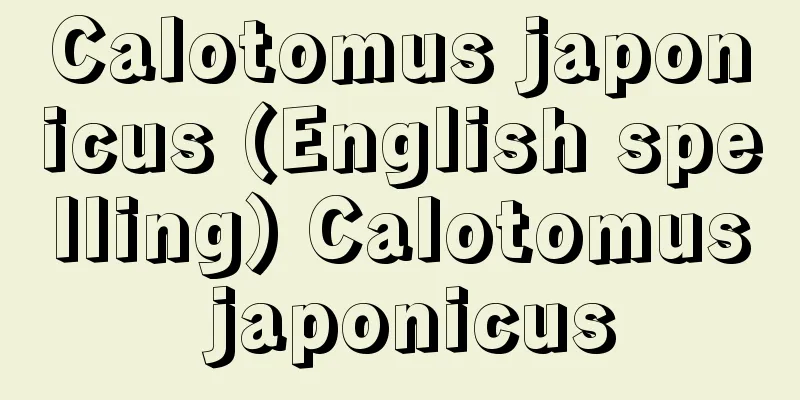Theory of Ideas - Idearon (English spelling)

|
The central philosophical thought of the ancient Greek philosopher Plato is the idea, which means form, or essence. Plato understood ideas as ideas, but he believed that they were known not through experience, but by recalling the kingdom of God in which the soul lived during life (theory of concept recollection). In other words, he considered ideas to be conceptual entities that are the essence of empirical things, but that transcend them. For this reason, Plato is considered a classical representative of idealist philosophy. Source: Obunsha World History Dictionary, Third Edition About Obunsha World History Dictionary, Third Edition |
|
古代ギリシアの哲学者プラトンの中心的な哲学思想 イデアとは形相すなわち本質の意。プラトンは観念をイデアと解したが,これは経験によって知られるのではなく,生前に霊魂が住んでいた神の国を想起する(概念想起説)ことによって知られるとした。すなわち,イデアを,経験的諸事物の本質ではあるが,それらを超越している観念的実体と考えた。このことによって,プラトンは観念論哲学の古典的代表者とみなされている。 出典 旺文社世界史事典 三訂版旺文社世界史事典 三訂版について 情報 |
>>: Theory of Ideals - Idealron
Recommend
Degree hours
…For a more precise estimate, use hourly values. ...
os temporale (English spelling) os temporale
…It is a rectangular dish-shaped bone connected b...
sensitive period
…Subsequent research has revealed the following g...
Kanra [town] - Kanra
A town in Kanra County in the southwest of Gunma P...
Temperature sensation
Sensations caused by the reception of thermal sti...
Complete goodness
...The principal image is the Amida Buddha. It is...
Japanese encephalitis
It is an acute infectious disease caused by the J...
Sacred mountain
<br /> This 825m mountain stands on the bord...
Creole - Creole
A pidgin is a language that is formed when two or ...
Tadzhikskaya SSR (English notation)TadzhikskayaSSR
…Official name = Republic of TajikistanJumhurii T...
"Kawachiya Yoshimasa Chronicle" - Kawachiya Yoshimasa Chronicle
...He explains why this is so, saying that it is ...
Haniwa of vessels and treasures
A general term for figurative clay figures that ar...
《Aiyam》 - Aiyam
…At the age of nine, he memorized the Quran and e...
Predis, A. (English spelling) PredisA
…Although much about his career is unclear, he is...
Arabian tahr
It is a member of the Bovidae family of the Mamma...









